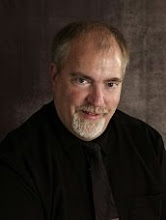The culture of polygamy

One of my favorite movie quotes of all time is from Austin Powers-Goldmember when Austin’s father (Michael Caine) says, “There’s two things in this world I can’t stand—those who are intolerant of other people’s cultures, and the Dutch.” Oh, yes, there are many politically correct people in the world of academia who are tolerant of everything and everyone—except “intolerance.” World history and foreign language classes have the stated goal to bridge the gap between cultures and to make students more tolerant of others. And US History courses are to be less a celebration of the greatness of America, and more a searing indictment of her serial intolerance and injustice toward Native Americans, African Americans, women, immigrants, and the poor.
At what point is something a point of “culture” which can be appreciated and tolerated, and when does it become scandalous and offensive enough to judgmentally declare ourselves to be intolerant of it? I remember some years ago when I was responsible for chaperoning a group of American Christian high school students on a trip to Germany, where they would stay with host families. One young man said that at one party, the German kids wanted to not only drink and smoke but turn off the lights and dance nice and slow with their partner. My student said that they didn’t want to do that, that it was wrong. His German host said, “But that’s our culture.” Responded the Christian student (who is now a pastor), that’s not culture, that’s just sin.
A secluded, isolated temple compound near San Angelo, Texas, was raided last week. Over 400 children, suspected of being the victims of sexual abuse, have been taken into state custody, have been assigned lawyers, and will go through DNA testing to determine paternity. This is allegedly a polygamist group known as the Fundamentalist church of Jesus Christ of Latter Day Saints, and their head, Warren Jeffs, is already in jail for having relations with a 14-year old girl. The regular Latter-Day saints, commonly known as Mormons, disavow any relationship to the “Fundies” because they renounced polygamy years ago.
I saw a news story in which three of the young women from the compound were distraught that their children had been taken away from them and, upon questioning, denied that any adult men had had relations with underage girls. What it boils down to is the definition of “underage.” According to one cultural definition, if a female is able to bear children, she is of marriageable age. And since the onset of puberty can take place even before age 10, it certainly is frightening to imagine the abuses that may have been taking place behind the secrecy of the compound walls.
Or is this just a cultural difference between us and we should be more tolerant of those who are not like ourselves? In Latin American countries, young girls celebrate the quinceañera at the age of 15. Although there is a religious rite and blessing attached with the event, the history and tradition of this cultural event was to signify a girl’s passage from childhood to womanhood, and to announce that she was ready for marriage. In our study of Islam, we noted that the prophet Muhammad’s favorite wife was Aisha, who was 9 when the 52-year-old prophet (Peace be upon him) consummated their marriage. Even today, the marriageable age in Yemen is 9. In Iran it is 13. In the middle ages, Christian Europe did not judge child marriages—and defined them as marriage to a girl who was between 7 and 12. 12-year old girls were frequently married, and considered of the age of consent. Shakespeare’s Juliet, after all, was 13. The age of marriage varies throughout the United States. With parents’ permission, girls can marry at age 16 in Michigan, 15 in Hawaii and Mississippi, and even 13 in New Hampshire.
It certainly appears that this is going to cost the citizens of Texas a fortune. If every one of these 400 kids is assigned their own attorney, and given DNA testing, and placed in foster care, the expenditure is going to be enormous. But at least these dirty old men who used young girls as breeders will have been stopped. Our tolerance goes only so far.



